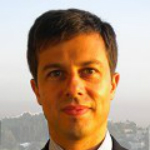Cost: £1,500
Book a place
Overview
This short course/CPD module outlines the fundamentals of wireless communications systems.
It covers the principles associated with data transmission, with a special emphasis on aspects concerning the physical layer and the medium-access control layer.
You'll learn about the foundations and the applications of the various algorithms, techniques and protocols.
The course is run by UCL's Department of Electronic and Electrical Engineering.
Who this course is for
The department's courses/CPD modules are aimed at those working in the telecommunications industry such as researchers, engineers, IT professionals and managers.
The courses are particularly suited to graduates in electronic and electrical engineering, physics, communications engineering and computer science who want to further their knowledge on a particular topic, or work towards a Master's degree.
You don't need to have any prerequisite qualifications to take this course, although a basic understanding of engineering mathematics will be beneficial.
Course content
The course is made up of the following areas.
Introduction
- Historical perspective
- Elements of a digital transmission system
Principles of channel coding
- Fundamental limits in data transmission (preliminaries, channel coding theorem, channel capacity as a fundamental information transmission limit)
- Channel coding schemes (FEC vs. ARQ, block codes, convolutional codes, Viterbi algorithm, turbo codes, LDPC codes)
Principles of source coding
- Fundamental limits in data compression (preliminaries, source coding theorem, entropy as a fundamental information compression limit)
- Lossless source coding schemes (Huffman codes, Shannon-Fano-Elias codes, arithmetic codes, Lempel-Ziv codes)
- Lossy source coding schemes (e.g. JPEG, MPEG)
Baseband digital transmission
- Digital transmission: schemes, their power density spectrum and bandwidth
- Digital reception: the matched filter demodulator, the correlator demodulator, optimal detectors, and BER calculations
Passband digital transmission
- Digital modulation: schemes, their power density spectrum and their bandwidth
- Digital demodulation: coherent receivers, differentially coherent receivers, non-coherent receivers, and BER calculations
Communication through wireless channels
- Wireless channel models
- Diversity techniques
- Multiple-antenna systems (spatial multiplexing and space-time coding)
- OFDM technology
- Spread-spectrum and CDMA technology
Other advanced topics
- Network coding and applications
- Fountain coding and applications: Luby transform codes, raptor codes, online codes
- Wireless physical-layer security
Dates, assessment and certificates
Classes will be held from 2pm to 6pm on Fridays, for 8 weeks.
Teaching will take place in person with some materials available online. Please note, dates and teaching arrangements may need to change in response to government guidance around Covid-19.
The course is assessed by exam.
If you complete the course but not the exam, you'll receive a certificate of attendance.
If you take and pass the exam you'll get a certificate stating this, which includes your pass level.
Benefits of UCL's Electronics and Engineering CPD courses
You can take this course as a standalone (one-off) course/module, or accumulate it towards an MSc qualification (up to two standalone modules can be transferred towards the flexible MSc degree).
Benefits to employees
The programme offers the opportunity for professional people working in the telecommunications industry to develop their career, be able to respond to changes in their environment, and learn while they earn. It's also designed to give you the opportunity of working towards an MSc qualification from an academic institution whose quality is recognised world-wide.
Benefits to employers
Our flexible CPD courses enhance staff motivation and assists in the recruitment and retention of high-quality staff. It enables your company to keep ahead of the competition by tapping into world-leading research, and to profit from UCL's world class Telecommunications and Business expertise.
View the full range of related courses available.
Course team

Professor Miguel Rodrigues
Miguel is the course (module) leader.
His areas of research interest include information theory, communications theory and statistical signal processing.
Book a place
Course information last modified: 30 Nov 2022, 16:01
 Close
Close

